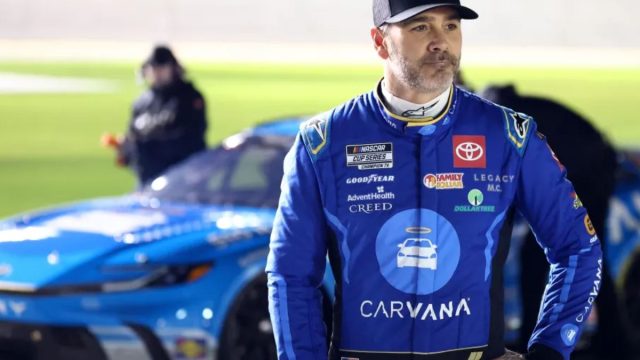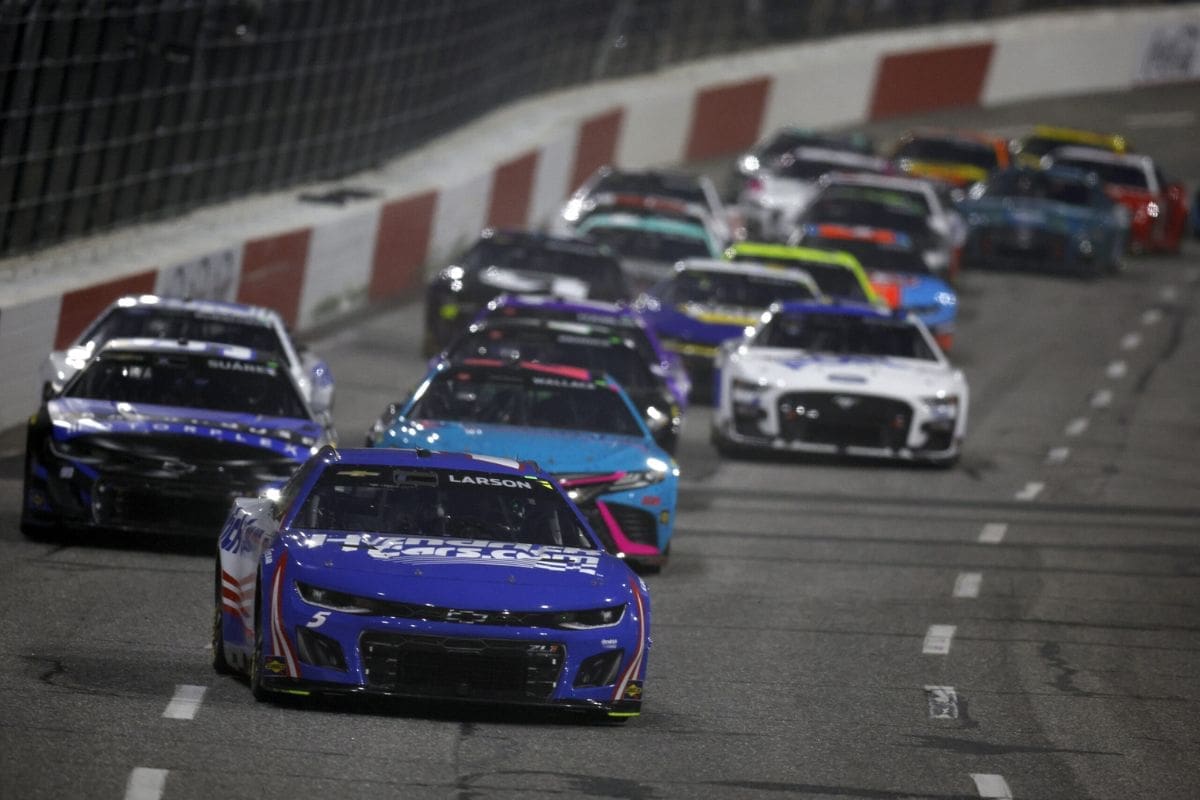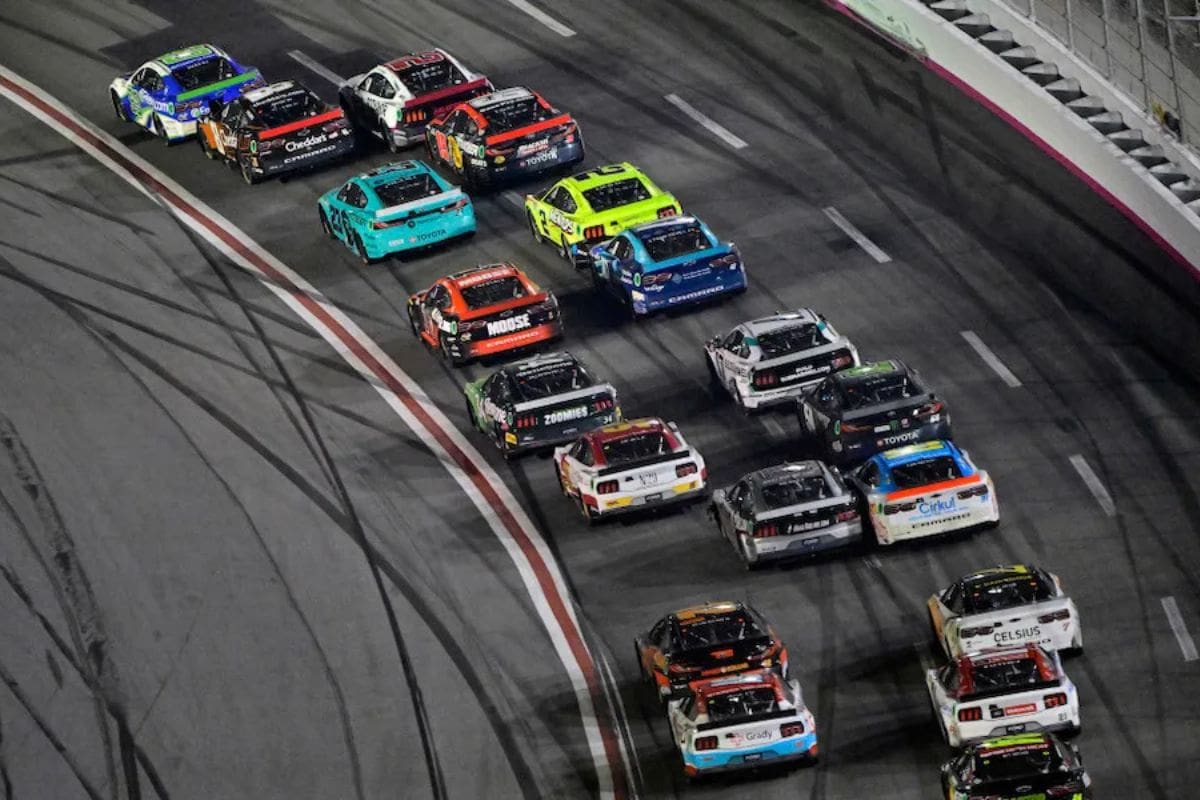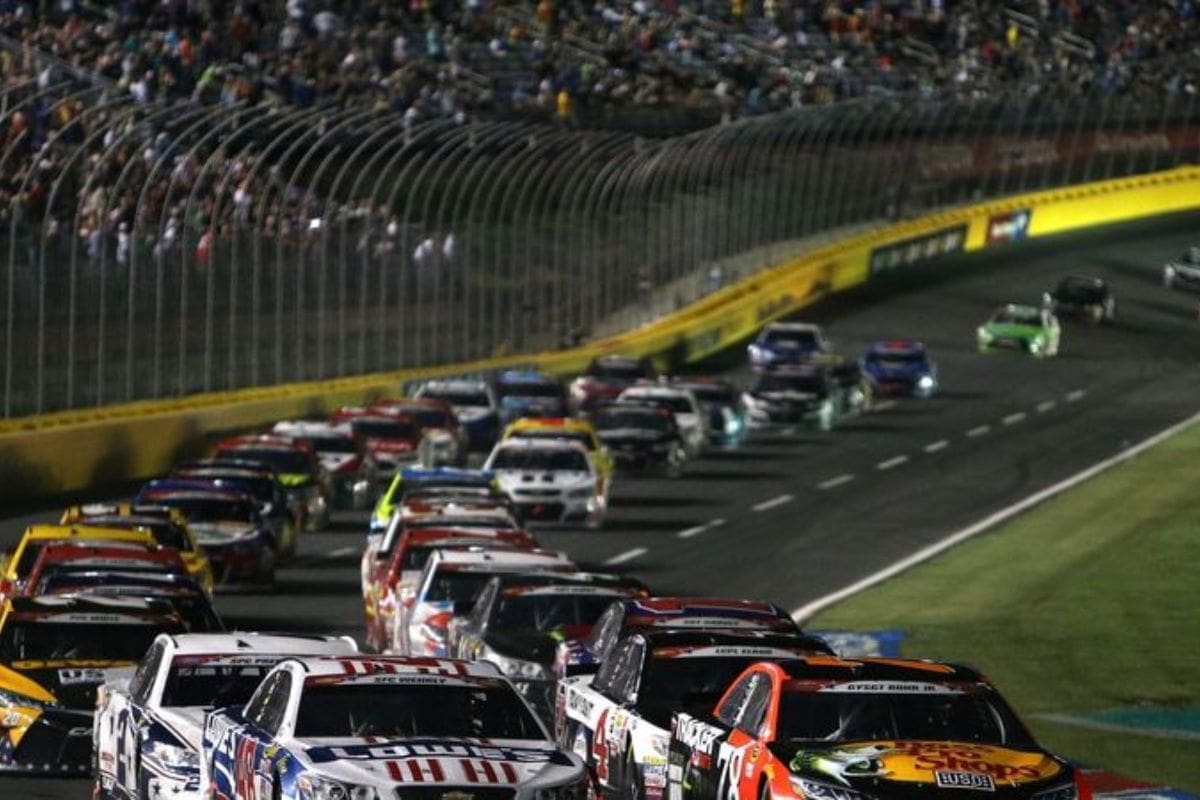Successful Drivers and Teams at All-Star Race: The All-Star Race, a cornerstone event in NASCAR, not only challenges the mettle of individual drivers but also the strategic expertise of their teams. Over the decades, figures like Jimmie Johnson and teams such as Hendrick Motorsports have etched their names into history with multiple wins, highlighting their dominance and ability to adapt to the race’s evolving format. These successes are not just a proof of skill and speed but also of strategic planning and execution. As the event returns to the historic North Wilkesboro Speedway in 2024, one ponders how past performances will influence the strategies adopted by new contenders under the race’s unique demands.
Key Highlights
- Jimmie Johnson holds the record with four All-Star Race victories.
- Dale Earnhardt Sr., Jeff Gordon, and Kyle Larson each have three wins.
- Hendrick Motorsports leads with 11 team victories in the All-Star Race.
- Chevrolet is the most successful manufacturer with 21 wins.
- Ford follows with 13 victories in the All-Star Race.
Return to North Wilkesboro for the 2024 All-Star Race
As the 2024 NASCAR Cup Series approaches, the return of the All-Star Race to North Wilkesboro Speedway for a consecutive year marks a significant continuation of the venue’s storied legacy in motorsports. The decision to host the All-Star Race once again at North Wilkesboro not only highlights the track’s historical significance but also its revitalization and modern relevance in today’s racing circuit. After being absent from the Cup Series calendar since 1996, North Wilkesboro Speedway has undergone significant improvements to guarantee it meets the sophisticated standards required for contemporary racing while preserving its unique characteristics that have endeared it to motorsports enthusiasts for decades.
The choice of North Wilkesboro as the venue for the All-Star Race, a high-profile non-point event that traditionally features NASCAR’s most successful and popular drivers, speaks volumes about NASCAR’s commitment to blending tradition with innovation. This move potentially sets an example for the future of the sport, where historical tracks are reintegrated into the modern racing agenda, providing a rich narrative thread that connects generations of fans and drivers.
Moreover, the track’s configuration, with its 0.625 miles of asphalt short track, promises intense, close-quarters racing, highlighting driver skill and strategy over sheer horsepower and aerodynamics. This aligns perfectly with the All-Star Race’s ethos of being a spectacle of talent and entertainment, ensuring thrilling competition that appeals to both purists and casual fans.
History of the All-Star Race
The All-Star Race, initiated in 1985 at Charlotte Motor Speedway, has since evolved into a highlight of the NASCAR season, highlighting the elite talent and competitive spirit of the sport’s top drivers and teams. The inaugural event set an example with its unique, shorter format designed exclusively for winners from the previous and current seasons, along with past event champions, making it a prestigious, victory-driven contest. Darrell Waltrip steering the No. 11 Chevrolet for Junior Johnson & Associates won at the first event.
Charlotte Motor Speedway retained the privilege of hosting the All-Star Race for multiple years, embedding it as a centerpiece of mid-season excitement. This exclusivity helped in cultivating a distinct atmosphere, different from regular points races, where the emphasis is intensely focused on aggressive racing and strategic gambles.
The race’s format has undergone several modifications over the years to increase its unpredictability and spectacle. These changes include varying the number of laps and segments, introducing mandatory pit stops, and inverting starting positions to spice up the competition.
There was some magic in that T-Rex mobile. #AllStarRace pic.twitter.com/4ikyauP8Q5
— NASCAR (@NASCAR) May 17, 2024
Notable Winners and Teams
Building on the rich history of the All-Star Race, numerous elite drivers and teams have etched their names into NASCAR history through their remarkable achievements in this event. Around 26 racers have secured the checkered flag in 39 events. Leading the successful array is Jimmie Johnson, whose four victories highlight a career marked by precision and strategic intelligence on race day. His successes in 2003, 2006, 2012, and 2013 exemplify his ability to dominate high-pressure races that demand both aggressive driving and tactical skill.
Closely following Johnson are revered figures Dale Earnhardt Sr., Jeff Gordon, and Kyle Larson, each with three wins. Earnhardt’s victories in 1987, 1990, and 1993 were monumental, showing his fearless racing style and dedication. Similarly, Jeff Gordon, with his wins in 1995, 1997, and 2001, demonstrated exceptional skills and adaptability across different race conditions and formats. Kyle Larson’s more recent victories in 2019, 2021, and 2023 show a new era of driving excellence, blending youthful energy with an astute understanding of the race dynamics.
Furthermore, the success of Hendrick Motorsports, with an astonishing 11 victories (1995, 1997, 1999, 2001, 2003, 2006, 2012, 2013, 2020, 2021, 2023), highlights the organization’s mastery in assembling top-tier racing teams and vehicles that consistently perform at the pinnacle of NASCAR competition. Their strategic decisions, from car setup to pit stops, have often tilted the risky balance of All-Star races in their favor, solidifying their status as a powerhouse in motorsports.
Manufacturer Success
Five varied manufacturers have emerged victorious in the All-Star Race, with Chevrolet leading the pack by securing 21 wins (1985, 1987, 1988, 1990, 1993, 1995, 1997, 1999-2001, 2003, 2006, 2007, 2009, 2012-2014, 2019-2021, 2023). This remarkable achievement highlights Chevrolet’s enduring dominance and strategic strength in motorsports. The manufacturer’s success can be attributed to its robust engineering capabilities and the seamless synergy between the teams driving its vehicles, which has consistently produced vehicles that perform exceptionally under the high-pressure conditions of the All-Star Race.
Ford, holding the runner-up spot with 13 victories (1986, 1991, 1992, 1994, 1996, 1998, 2002, 2004, 2005, 2011, 2016, 2018, 2022), demonstrates strong competitive spirit and technological innovation. Ford’s approach often involves pushing the envelope in terms of aerodynamics and engine performance, factors critical in the short, intense bursts of racing that characterize the All-Star Race.
Toyota (2015, 2017) and Dodge (2008, 2010), each with two wins, emphasize the diversity and competitiveness of the field. Toyota’s entry into the NASCAR scene was met with skepticism, but their All-Star Race victories have been instrumental in establishing their reputation in stock car racing. Similarly, Dodge’s wins, albeit fewer, were significant during their periods of active competition, showcasing their ability to compete at the highest levels.
Pontiac’s solitary win in 1989 places it in a unique position within this narrative. Although no longer an active player in the racing scene, Pontiac’s historical win in the All-Star Race is a reflection of the brand’s legacy and the impact it had during its tenure.
Recent Winners and What to Expect
Reflecting on manufacturer success in past races, attention now turns to the anticipated excitement at North Wilkesboro Speedway, where recent winners are poised to deliver thrilling performances. The return to this historic track brings with it a heightened sense of competition among a select group of drivers proven to excel under All-Star conditions.
| Year | Champion |
| 2009 | Tony Stewart |
| 2010 | Kurt Busch |
| 2011 | Carl Edwards |
| 2012 | Jimmie Johnson |
| 2013 | Jimmie Johnson |
| 2014 |
Jamie McMurray
|
| 2015 | Denny Hamlin |
| 2016 | Joey Logano |
| 2017 | Kyle Busch |
| 2018 | Kevin Harvick |
| 2019 | Kyle Larson |
| 2020 | Chase Elliott |
| 2021 | Kyle Larson |
| 2022 | Ryan Blaney |
| 2023 | Kyle Larson |
Among the notable contenders, Kyle Larson, Kevin Harick, and Chase Elliott stand out due to their recent successes and aggressive driving styles suited for the high-stakes nature of the All-Star Race. Larson, known for his exceptional skill on short tracks, is likely to utilize his adaptive racing technique to navigate the Speedway’s unique challenges. His track record of seizing opportunities in tight race situations makes him a formidable competitor.
Kevin Harvick, with his seasoned experience and strategic finesse, is expected to capitalize on the race dynamics. His ability to maintain composure under demanding circumstances and execute flawless pit strategies will be pivotal in the fast-paced environment of North Wilkesboro.
Dale would do anything to win. #AllStarRace pic.twitter.com/21o9fxC4f5
— NASCAR (@NASCAR) May 16, 2024
Chase Elliott, carrying the momentum of recent victories and massive fan support, also enters as a strong candidate. His talent for overtaking and defensive driving will be key factors in a race where every moment counts.
News in Brief: Successful Drivers and Teams at All-Star Race
The NASCAR All-Star Race, set to make a comeback at North Wilkesboro Speedway in 2024, shows a fusion of tradition and competition. Historical analysis highlights the importance of skillful drivers and strategic teams in shaping the outcomes of this prestigious event.
The consistent success of certain drivers and teams emphasizes the significance of adaptability and teamwork in motorsports. As the race progresses, these elements will unquestionably continue to impact its dynamic and spectator appeal.
Our Reader’s Queries
Q. Who has the most All-Star Race wins?
A. Jimmie Johnson holds the record for the most All-Star Race victories, boasting a total of four wins. Among active drivers, Kyle Larson leads the pack with three All-Star Race triumphs. Additionally, Ryan Blaney, Denny Hamlin, Chase Elliott, Kyle Busch, and Joey Logano each have secured one victory in the prestigious event.
Q. How are drivers picked for All-Star Race?
A. All drivers not yet qualified for the All-Star Race will have the opportunity to earn their spot through the All-Star Open, a 100-lap preliminary race. The top two finishers from this event, along with the winner of the Fan Vote, will secure coveted berths in the All-Star Race.
Q. What is the prize money for the NASCAR All-Star Race?
A. For the past 21 years, the coveted prize has remained at $1 million. During the last five years of Winston’s tenure as the Cup Series’ title sponsor, the $1 million bonus was claimed 13 times. Notably, the winner’s purse for the All-Star race has remained consistent at $1 million since 2003, which equates to approximately $1.7 million in 2024, reflecting its enduring value.
ALSO READ: North Wilkesboro Hosts NASCAR All-Star Race Again in 2025



